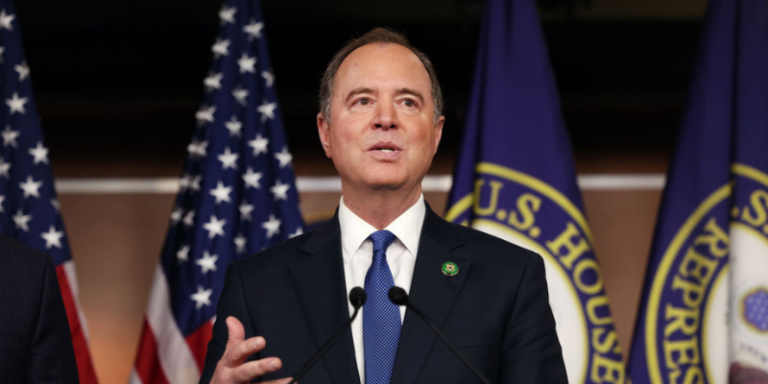Censuring: A Way of Punishing Elected Officials
Bad behavior in office can be publicly shamed.
By: Kelli Ballard | October 22, 2019 | 483 Words

(Photo by Kevin Dietsch/Getty Images)
Recently, Republicans in the House of Representatives tried to censure Representative Adam Schiff (D-CA). To censure someone means to condemn or criticize them or their behavior. How can the government censure a member of congress or the president of the United States?
It’s a Matter of Honor
The House of Representatives faced a problem figuring out how to reprimand a member of Congress or even the Commander in Chief, especially if the offender’s actions were serious enough to expel them from office. At a time when a man’s honor was all-important, it was an effective form of punishment to publicly censure or “shame” him.
When a member is subjected to censure, he or she is forced to stand in the well of the House (known as “the bar of the House” during the 19th century) while the Speaker or a presiding officer reads aloud the “crimes.” This form of public rebuke is an embarrassing blight on the person’s honor and integrity.
William Stanbery of Ohio insulted Speaker Andrew Stevenson of Virginia in 1832, and this became the first case where the House agreed to censure one of its own.
 In 1866, Lovell Rousseau of Kentucky received the punishment of censure for caning Josiah Grinnell of Iowa. The two exchanged insults about their military service in the Civil War. Rousseau resigned his seat after being censured and was re-elected.
In 1866, Lovell Rousseau of Kentucky received the punishment of censure for caning Josiah Grinnell of Iowa. The two exchanged insults about their military service in the Civil War. Rousseau resigned his seat after being censured and was re-elected.
A resolution to reprimand Abraham Lincoln was introduced on May 11, 1864, by Senator Garret Davis of Kentucky (Unionist Party). He claimed the president had allowed two generals to return to military service after they won an election to the House, saying the act was “in derogation of the Constitution of the United States, and not within the power of the President and secretary of War, or either of them, to make.” A change was made to the Constitution and the censure was not pressed.
Today’s Censured
It’s unlikely we’ll see any House members caning each other during sessions, but censure is still used for acts seen as dishonest or disloyal. Schiff’s was the most recent case, but other officials over the years have been censured or recommended for the punishment.

House of Representatives (Photo by Win McNamee/Getty Images)
Barack Obama
There were several censure resolutions submitted against President Obama. One stated that it was “for having willfully disregarded the legislative powers of the duly elected Congress provided by the Constitution of the United States through his executive actions to deprive American citizens of their constitutionally mandated right to bear arms under the Second Amendment.”
Donald Trump
Twice, a censure resolution has been submitted against President Trump, but neither moved for further action. The first condemned the president over his comments about a violent protest. The second motion to censure opposed the president’s comments regarding countries such as Haiti and El Salvador.
















